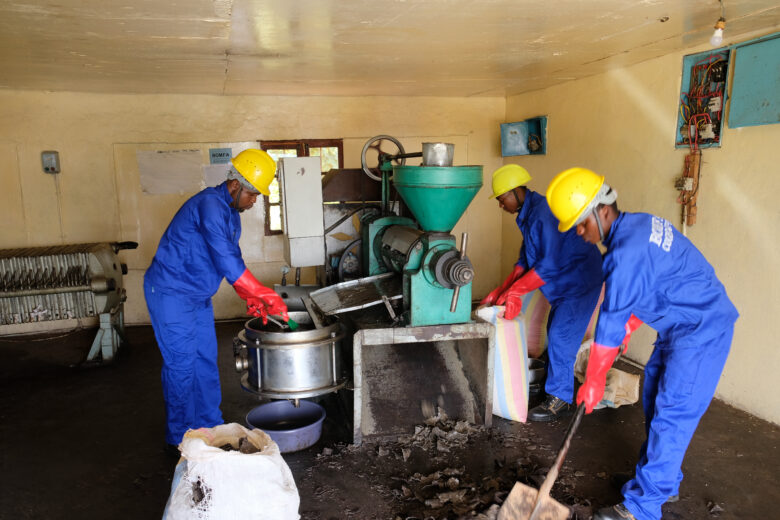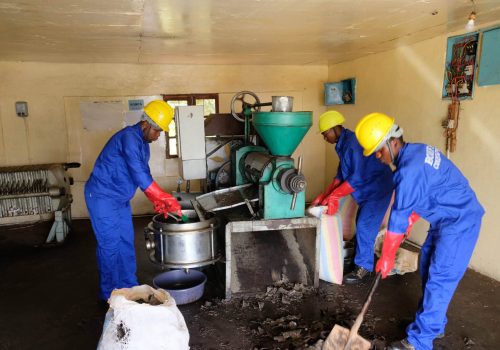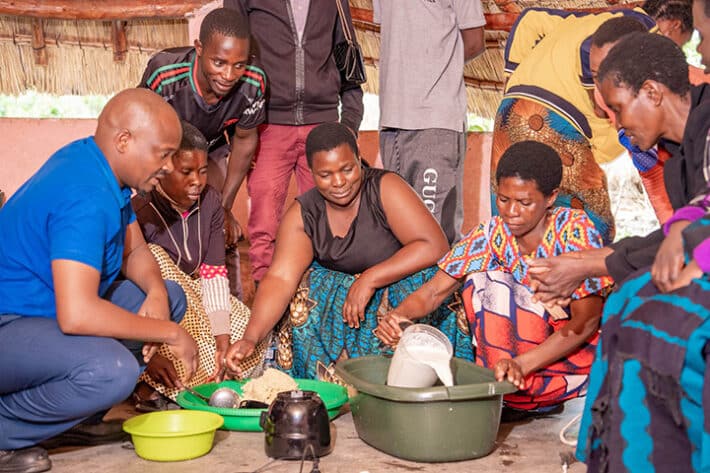Industrialisation in Malawi: MW2063 Pillar #2

The Second Pillar of Malawi Vision 2063

As we have discussed in some of our past blogs, Malawi Vision 2063 has three key pillars that guide the focus of the Vision. Read our blog about agricultural productivity and commercialisation here. These three pillars are meant to build on each other to create the inclusively wealthy and self-reliant nation that they envision. In this blog, we will look at the second pillar of MW2063: Industrialization.
“Our industrial sector will have strong backward and forward linkages with the agriculture, mining, and services sectors.”
What is Industrialisation?
Industrialisation is the process by which a country shifts from an economy largely based on raw resources (like agriculture) to one that manufactures or adds values to goods. The engine of industrialisation is often agricultural productivity. Industrialisation leads to lower food prices, economic growth, and a more highly developed workforce.
Why is industrialisation important?
Industrialisation leads to economic growth and improved human development. Industrialisation represents a country’s capacity to produce things for themselves and for export to the world market instead of relying on imports from other countries. Industrialisation is a key factor in Malawi’s transformation into a more developed and self-reliant nation.
What are Malawi’s primary challenges with regards to Industrialisation?
For Malawi to industrialise, it must first overcome the challenges it faces with agricultural productivity and commercialisation. Beyond this, there are many barriers to industrialisation in Malawi. There are challenges with government regulation, access to electricity, lack of transport infrastructure, lack of capital, and lack of the required skills to develop these capacities.
Infrastructure, Energy, and Investment
Malawi’s roads, rail, and energy infrastructure are significant impediments to agricultural, industrial, and human development. Lack of infrastructure makes Malawi a less attractive destination for business and investment opportunities. The Malawian government hopes to overcome these challenges through public-private partnerships and access to affordable finance for businesses.
Promotion of Research, Science, Technology, and Innovation
MW2063 calls for a redesign of the Malawian education system to meet the needs in the manufacturing industry. Industrial zones with support services in banking and marketing must be established. Malawi must invest in steel manufacturing so that there is a more ready access to steel for production. Steel, aluminum, iron, and other metals should be recycled to be more sustainable and resource efficient.
How does industrialisation relate to urbanization (Pillar #3)
Industrialisation allows for increased and more efficient urbanization. As a society becomes more industrialised there is greater job diversification and increased synergies between different industries. Urbanization makes society more efficient by bringing populations closer together so that they can benefit from sharing public and private resources. The service, tourism, and banking sectors will develop and continue to increase industrial and urban development.
Be sure to check out our other blogs on Malawi Vision 2063 here and stay tuned for our next Malawi Vision 2063 blog on Pillar #3: Urbanization!




